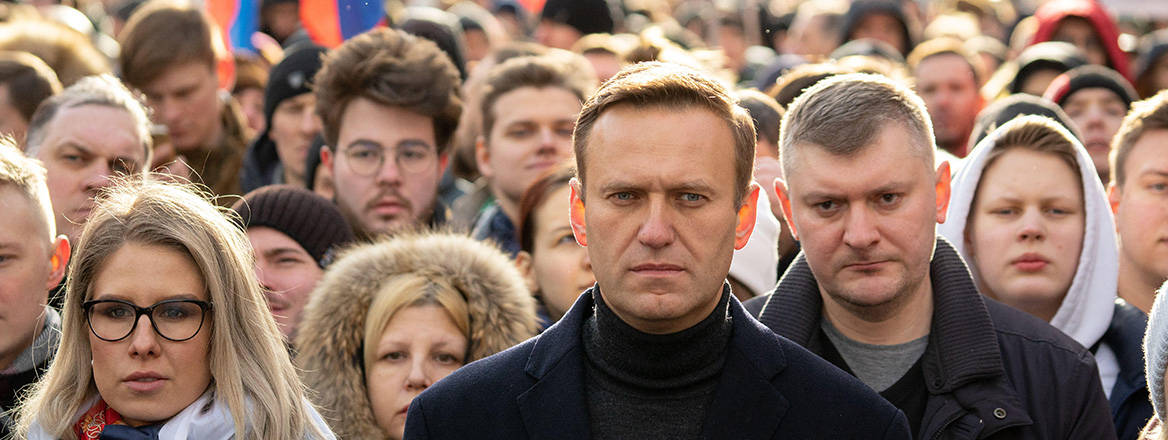Navalny’s Legacy: The Twilight of Russian Oppositional Thought?
The recent death of Alexei Navalny has served to highlight the dire conditions faced by those who defy Putin’s rule. It is unlikely that an opposition figure of his stature will emerge in the near future.
The news of Alexei Navalny’s death in a remote arctic penal colony is a tragic but sadly predictable outcome for anyone bold enough to try and defy the will of Russia’s totalitarian regime. With his passing, one must consider the state of the Russian opposition. Does it have any meaningful impact in Russian society, or has the hope of any substantial political reform been extinguished?
In the Footsteps of Nemtsov
Undoubtedly, Navalny stood as the physical manifestation of Russia’s opposition. His criticism of the government, his push for the adoption of democratic values, and his organisation of what has been the most substantial threat to Putin’s regime to date was successful in galvanising a considerable support base among those frustrated by the inherent inequality within Russia’s kleptocratic political structure.
This ardent activist was never considered a credible successor to Putin, and his domestic support as a prospective presidential candidate never gained substantial momentum. Yet despite this and his dubious past associations with Russian nationalism, Navalny’s Anti-Corruption Foundation has been crucial in highlighting the inequality within Russian society – not only to a domestic audience, but to the world. The organisation’s investigations have exposed the corruption of a large number of Putin’s inner circle, including Moscow mayor Sergey Sobyanin, Foreign Minister Sergei Lavrov, and even Vladimir Putin himself.
While the causes of his death are uncertain, Navalny had been transferred to FKU IK-3 – an isolated maximum security penal colony known for its harsh treatment of prisoners – to serve a sentence that would have lasted for the majority of his expected lifespan. Regardless of direct involvement from Putin or not, Navalny was sent there to be forgotten, and his death was sadly to be expected.
Even during his time under these harsh arctic conditions, Navalny was able to remain a thorn in the Kremlin’s side: his limited public appearances, mostly via courtroom video link, portrayed a defiant man, smiling and joking despite the irrevocability of his fate. While he was not able to mobilise support to anywhere near the degree that he previously could, his endurance and commitment to his cause remained a persistent reminder of the deep-rooted inequality within Russian society – a reminder that the Kremlin has attempted to destroy.
The suspicious deaths of Putin’s critics have been a relatively consistent theme throughout his presidency – those who remember Boris Nemtsov's killing in 2015 will recognise the evidence of Putin’s handiwork
With Russia’s elections just around the corner, the screws are being tightened on political participation and criticism, with increasingly harsh laws on spreading ‘fake news’, particularly for those who are anti-war. The timing seems optimal for the removal of a vocal critic of the regime before he was able to stir up further trouble. The suspicious deaths of Putin’s critics have been a relatively consistent theme throughout his presidency – those who remember Boris Nemtsov, an equally vocal critic of Putin who met a similarly brutal fate in 2015 – will recognise the evidence of Putin’s handiwork. The president now appears to be laying the foundations to further restrict the expression of discontent. The barring of Yekaterina Dunstova from the election campaign, the sentencing of critic Igor Girkin and the suspicious silence surrounding Yevgeny Prigozhin’s death all point to a leader who is not above using dirty tactics to achieve his political aims.
Remains of the Opposition
Alexei Navalny will remain the most prominent manifestation of Russian discontent, but he was not the only one to defy Putin’s rule. Who are the others that have attempted to challenge the steel throne, and do they possess any potential to follow in his wake?
Mikhail Khodorkovsky, an exiled former member of the Russian elite, openly calls for preparations for the fall of Putin. His call for a revolution led by the elites – instead of the apparently apolitical majority – uniting all opposition movements under the banner of ‘neo-Bolshevism’ has failed to galvanise a collective movement. This is not only because of the lack of involvement of the majority of Russian society, but also because his plans to directly coerce or cooperate with those who currently benefit from Putinism seem to underestimate the strength of Putin’s grip on Russian politics.
Boris Nadezhdin, currently best known for his failed attempt to run as a presidential candidate on an anti-war platform, has been vocal in his criticism of Putin. He signed an appeal against the constitutional reforms in 2020 and has repeatedly criticised Russia’s ‘colonial war methods’ in Ukraine, garnering the support of a substantial part of Russian society as an anti-war candidate. However, due to his inability to participate in the current election cycle, it remains to be seen whether he can generate any significant opposition to Putin.
Regional activists such as Fail Alsynov, a campaigner for ethnic Bashkir rights, and human rights advocate Vladimir Kara-Mura similarly serve as examples of the successful galvanisation of the population against the state. Unfortunately, having made a name for themselves, they became the target of the Russian state’s wrath, and are now suffering the full extent of the ‘law’ in similar conditions to those that Navalny was subjected to.
Navalny shares a space with figures such as Nelson Mandela and Vaclav Havel, as someone who was prepared to sacrifice and suffer in the pursuit of his values
Several groups of military wives and mothers have begun to protest against the mobilisation of Russia’s men. Having found relative success within previous conflicts, their utilisation of patriotic dissent is particularly difficult for Putin to repress. The president has tried to embody the image of a traditional Christian conservative, a man who is defending his country in an existential fight for survival. While this has allowed him to pursue the imprisonment and harsh repression of ‘extremist’ protestors in Bashkortostan, he is unable to use the same punishment on a group of patriotic war widows without suffering a colossal hit to his reputation. This provides the group with an unusual level of freedom in today’s Russia. However, their focus does not extend beyond the return of their men, and consequently, we cannot expect significant democratic reform to emerge from this avenue.
Is There Any Hope?
Alexei Navalny served as a symbol of the fight for a democratic Russia, yet he was never the official leader of a collective Russian opposition. As it stands, ideological clashes between liberal, ultra-national and single-issue fringe groups have prevented any unification behind a set of core oppositionist policies.
Vocal protests across Europe demonstrate that Navalny was a beacon of hope in Western societies for change in Russia. Yet the comparably sombre events that have occurred across Russia, leading to around 100 arrests, tell a different story – one of utter helplessness in the face of an emboldened Bol’shoy Brat (Big Brother). Protests and discontent will undoubtedly continue to pop up sporadically across Russia, but as Putin tightens his grip on the reins of power, his path towards complete state totalitarianism seems assured.
Navalny shares a space with figures such as Nelson Mandela and Vaclav Havel, as someone who was prepared to sacrifice and suffer in the pursuit of his values. Following the removal of such an emblematic figure, there is no direct replacement, and consequently, the voice of reform within Russia is likely to fade for the time being.
The death of Navalny, the barring of anti-war candidates from the upcoming elections, and the swiftness of repression against any form of protest paint a grim picture for the future of Russia. This should serve as yet another wake-up call to the West that democracy must be protected at all costs, lest we suffer a similar fate.
The views expressed in this Commentary are the author’s, and do not represent those of RUSI or any other institution.
Have an idea for a Commentary you’d like to write for us? Send a short pitch to commentaries@rusi.org and we’ll get back to you if it fits into our research interests. Full guidelines for contributors can be found here.
WRITTEN BY
Callum Fraser
Research Analyst, International Security
International Security
- Jim McLeanMedia Relations Manager+44 (0)7917 373 069JimMc@rusi.org


